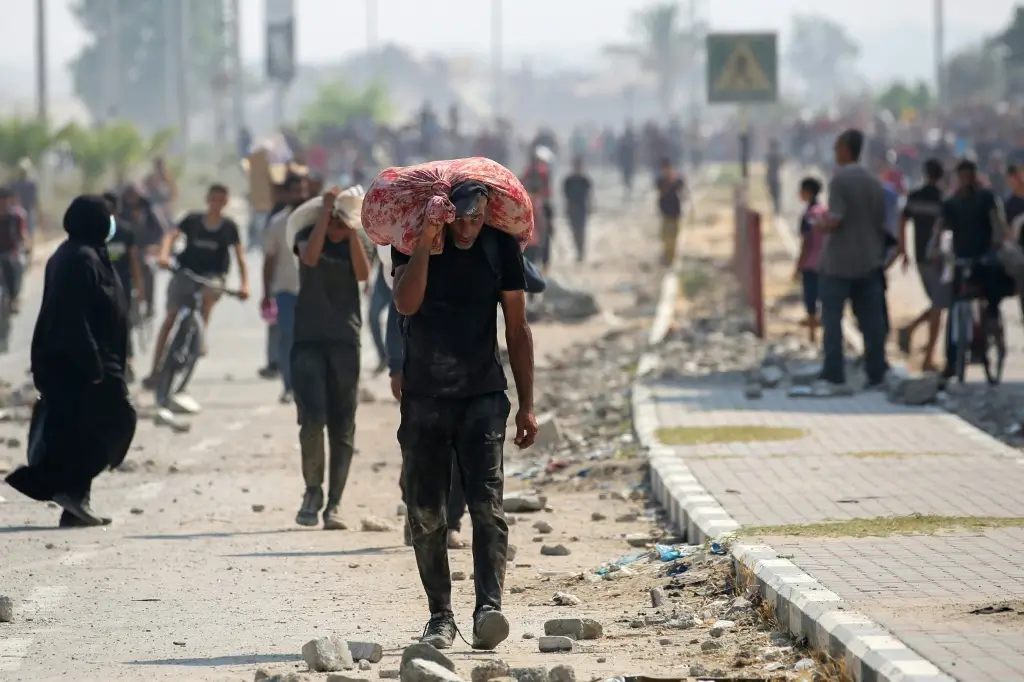
Germany, France, and Great Britain want to agree on further steps in Middle East policy, according to Chancellor Friedrich Merz (CDU). Merz stated on Saturday that he had "coordinated our course in Middle East policy in a detailed telephone conversation" with French President Emmanuel Macron and British Prime Minister Keir Starmer. According to Starmer, this also included airdrops of aid supplies over the Gaza Strip.
According to a statement from the German government, Merz stated that during the telephone call between the E3 countries - Germany, France, and Great Britain, there was "broad agreement" with Macron and Starmer. "We will take the next steps in very close coordination in the coming days," he announced.
On Friday, Merz, Macron, and Starmer called for the lifting of all restrictions on humanitarian aid deliveries to the Gaza Strip. "The humanitarian catastrophe we are currently witnessing in the Gaza Strip must end now," the three politicians said in a joint statement. They also called for an immediate ceasefire in the Palestinian territory and the "unconditional" release of all Hamas hostages.
The Islamist Hamas triggered the war with its major attack on Israel on October 7, 2023. According to Israeli sources, more than 1,210 people were killed in the attack on villages, towns, and a music festival, and 251 were taken hostage to the Gaza Strip. 49 abducted people are still being held by the Islamists, at least 27 of whom are dead, according to the army.
In response to the Hamas attack, Israel has since launched a massive military offensive in the coastal strip. According to Hamas authorities, more than 59,600 people have been killed so far. These figures cannot be independently verified. Israel has come under increasing pressure in recent days due to the devastating humanitarian situation in the Gaza Strip. More than 100 aid organizations have warned of "mass starvation" in the Palestinian territory.
In the phone call on Saturday, Starmer also explained "how the United Kingdom will work with partners like Jordan to airdrop aid and evacuate children in need of medical assistance," the British government said. According to Starmer's office, the further steps announced by Merz include a "plan that would pave the way for a long-term solution and security in the region." Once this plan is developed, London, Berlin, and Paris will "try to involve other key partners, including in the region, to move it forward."
On Friday, an Israeli government official told the AFP news agency that airdrops of humanitarian aid to the Gaza Strip would resume quickly. They were being coordinated by the United Arab Emirates and Jordan. The UN Relief and Works Agency (UNRWA) described the resumption of airdrops as "inefficient" and "expensive." UNRWA chief Philippe Lazzarini stated on the online service X that the airdrops would "not end the worsening famine."
A ceasefire in the Hamas-controlled Gaza Strip and the release of the hostages from their clutches had recently become more remote following the breakdown of the latest round of negotiations: On Thursday, Israel and the United States withdrew their delegations from Qatar and accused Hamas of blocking the talks, which have been ongoing for three weeks. "Hamas really didn't want to make a deal. I think they want to die," said US President Donald Trump on Friday.
Hamas representative Taher al-Nunu expressed "surprise" at Trump's comments. On the contrary, "progress has been made on some negotiating points," he told AFP. Hamas was "not informed" about alleged "problems." In the view of Hamas Politburo member Issat al-Rishq, the Israeli government is the "real blocker," while the Islamists have shown "flexibility" in the negotiations.
Meanwhile, the Hamas-controlled Hamas Civil Defense blamed the Israeli army for the deaths of 25 people in the Gaza Strip. It also reported the recovery of the bodies of 12 people in the Morag Corridor area north of Rafah, which had been shelled by Israeli forces the previous night. The Israeli army said it had killed members of a "terrorist cell" that had planted an explosive device aimed at soldiers. The army also announced that its air force had attacked "more than 100 terror targets throughout the Gaza Strip" the previous day.
The civil defense spokesman, whom Israel accuses of being an "active terrorist" and spreading false information in support of Hamas, also accused Israel of firing shots at people waiting at three different humanitarian aid distribution points on Saturday, killing three of them. The Israeli army told AFP that its soldiers fired "warning shots to keep the crowd at bay" after detecting an "imminent threat."